Cloudfront.net is a legitimate service that the website owner uses to speed up their website. However, many scammers host their scam website on this platform to trick users.
Cloudfront.net does host websites related to malware and tech support scams but it is not a malware domain itself. When your web browser is redirected to the Cloudfront.net domain and you end up on a fake website such as below in the image, make sure to clean your computer from adware and other malware.
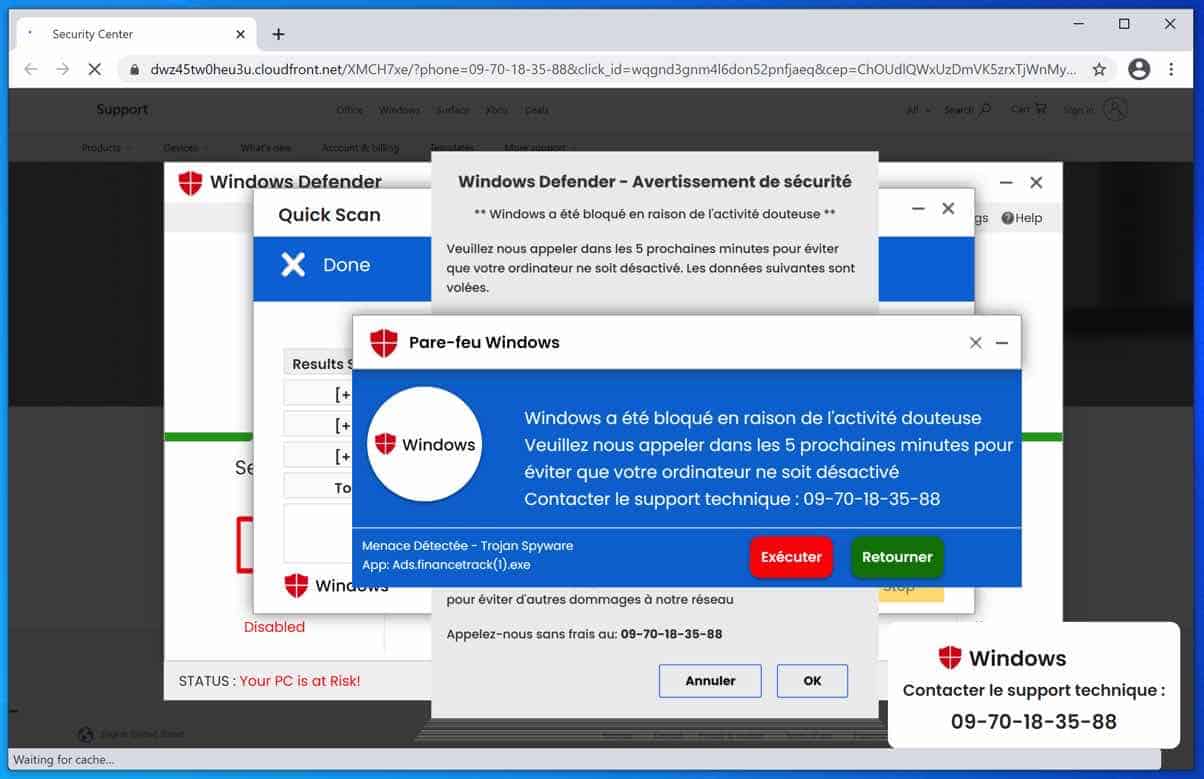
Not only adware is responsible for the Cloudfront.net pop-up ads. On the Internet, ad networks can also redirect your browser to Cloudfront.net. Some websites redirect users through ad networks to generate revenue. Therefore your browser may end up on the Cloudfront.net site.
I recommend that you check your computer for adware with Malwarebytes. Malwarebytes is free to check your computer for adware. If adware is found on your computer, you can use Malwarebytes to remove it for free.
you can also uninstall adware and malware yourself using the manual removal steps in this instruction, it is up to you to decide which method you would like to use.
In doing so, you will not run the chance of unwanted advertisements from Cloudfront.net and other sites that hijack your web browser again.
Remove Cloudfront.net
Choose your web browser
Google chrome
Open the Google Chrome browser. In the address bar type: chrome://extensions/. Verify all listed browser extensions.
If you notice an installed extension you do not know or do not trust, click the Remove button to uninstall the extension from Google Chrome.
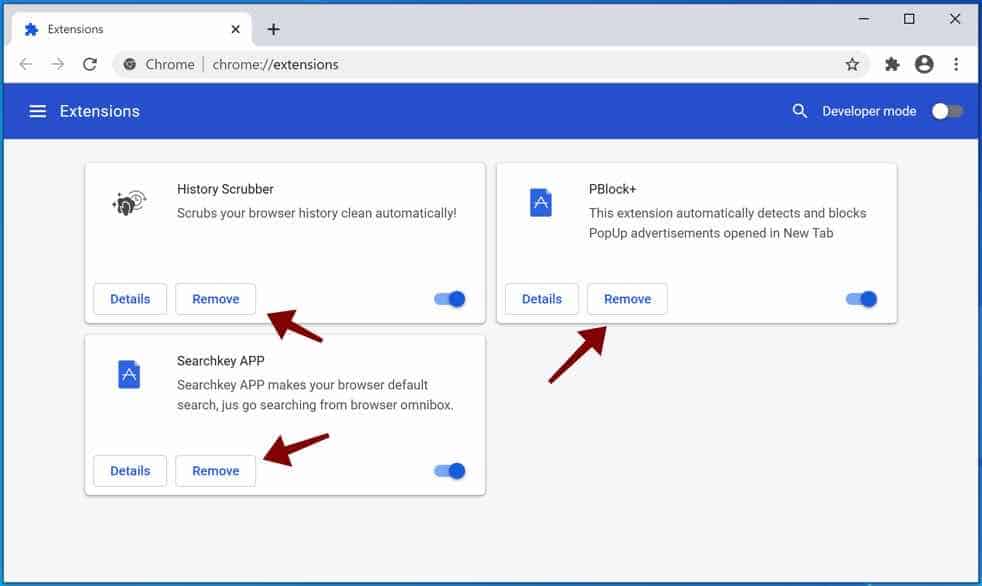
Next, in the top-right corner, expand the Chrome menu. In the Google Chrome menu, click on Settings.
At the Privacy and Security section, click Site settings. Click on the Notifications settings.
Remove Cloudfront.net by clicking the three dots on the right next to the Cloudfront.net URL and click Remove.

If you still have problems with the Google Chrome browser, consider a full Google Chrome reset.
In the Google Chrome address bar type, or copy and paste: chrome://settings/resetProfileSettings
Click the Reset Settings button to fully reset Google Chrome to the default settings. When you are done restart the Chrome browser.
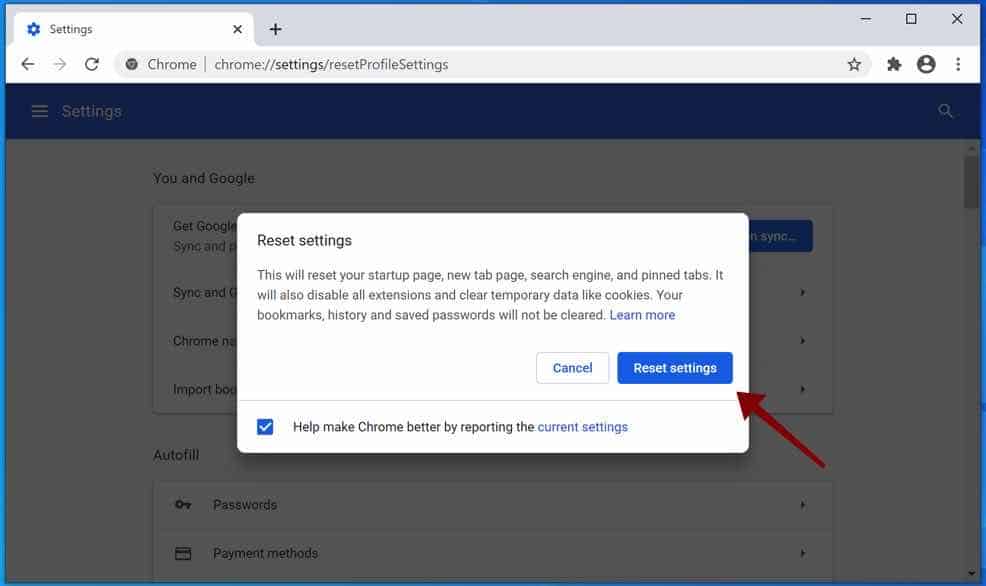
Continue to the next step, remove malware from your computer with Malwarebytes.
Firefox
Open the Firefox browser. In the address bar type: about:addons. Verify all installed Firefox add-ons.
If you notice an installed add-on you do not know or do not trust, click the Remove button to uninstall the add-on from Firefox.
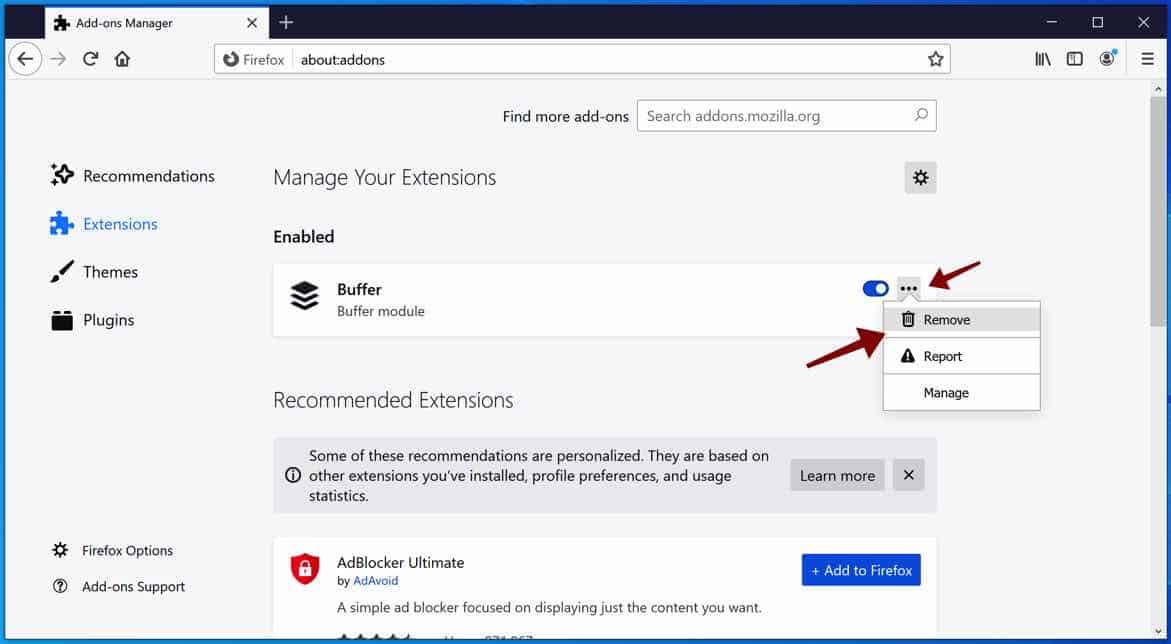
Next, in the top-right corner, click on the Firefox menu (three horizontal stripes).
In the menu click on Options, in the list on the left click on Privacy & Security.
Scroll down to Permissions and then click on Settings next to Notifications.
Select the Cloudfront.net URL from the list, and click on the Remove website button, save Firefox changes.

If you still have problems with Firefox, consider a full Firefox reset.
In the Firefox address bar type, or copy and paste: about:support
Click the Refresh Firefox button to fully reset Firefox to the default settings. When you are done restart the Firefox browser.
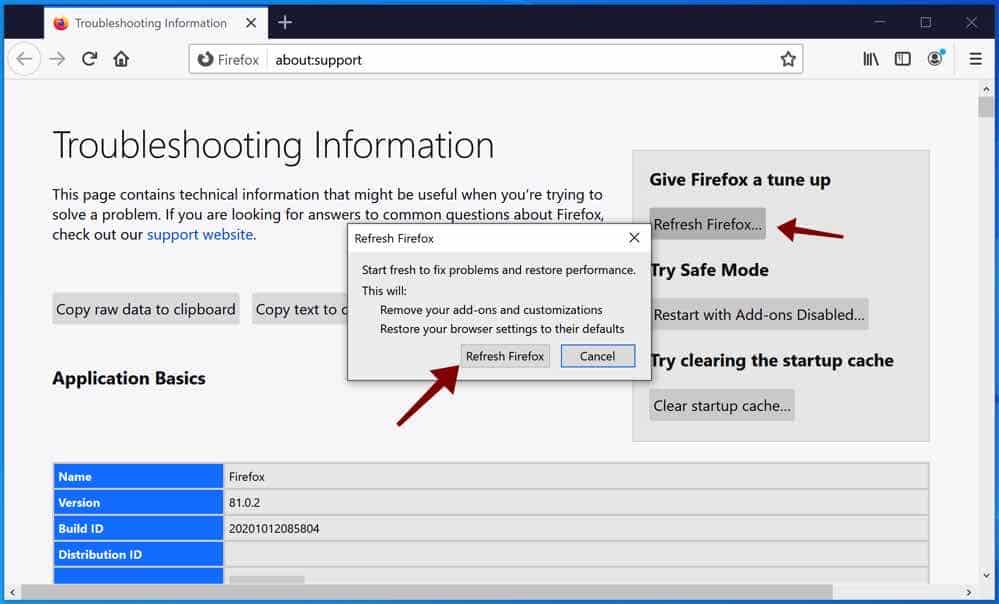
Continue to the next step, remove malware from your computer with Malwarebytes.
Microsoft Edge
Open the Edge browser. In the address bar type: edge://extensions. Verify all installed Microsoft Edge extensions.
If you notice an installed extension you do not know or do not trust, click the Remove button to uninstall the extension from Microsoft Edge.
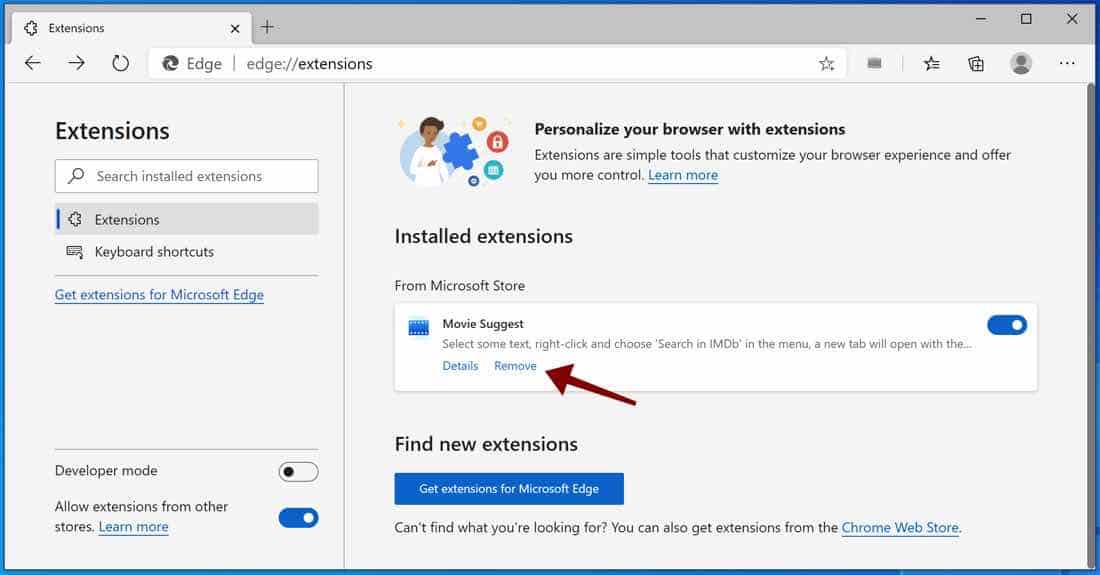
Next, in the top right corner, click on the three dots to expand the Edge menu.
In the left menu click on Site permissions. Click on Notifications.
Click on the three dots next to the Cloudfront.net URL. Click on Remove.
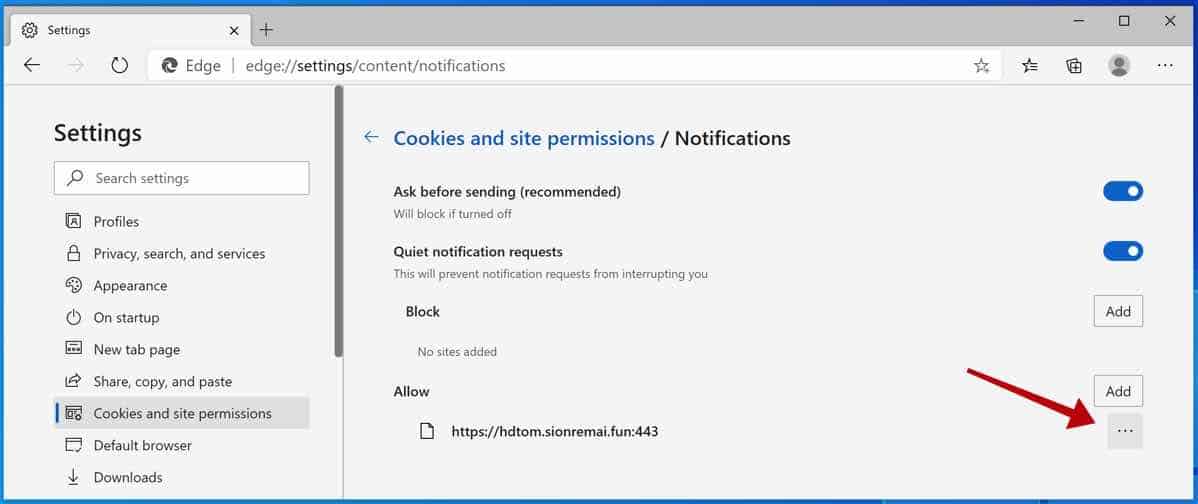
If you still have problems with the Microsoft Edge web browser, consider a full reset.
In the Microsoft Edge address bar type, or copy and paste: edge://settings/resetProfileSettings
Click the Refresh button to fully reset Edge to the default settings. When you are done restart the Microsoft Edge browser.
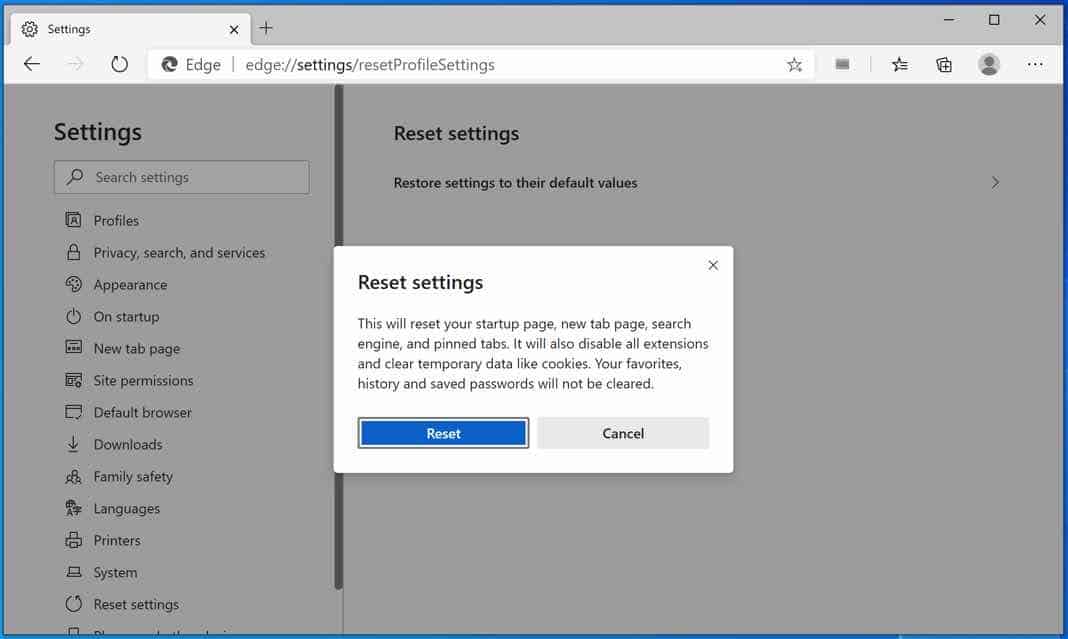
Continue to the next step, remove malware from your computer with Malwarebytes.
Safari
Open Safari. In the left top corner click on the Safari menu.
In the Safari menu click on Preferences.
Click on the Extensions tab.
Click on the extension you would like to remove, make sure to check for malware installed Safari extension, and click on Uninstall.
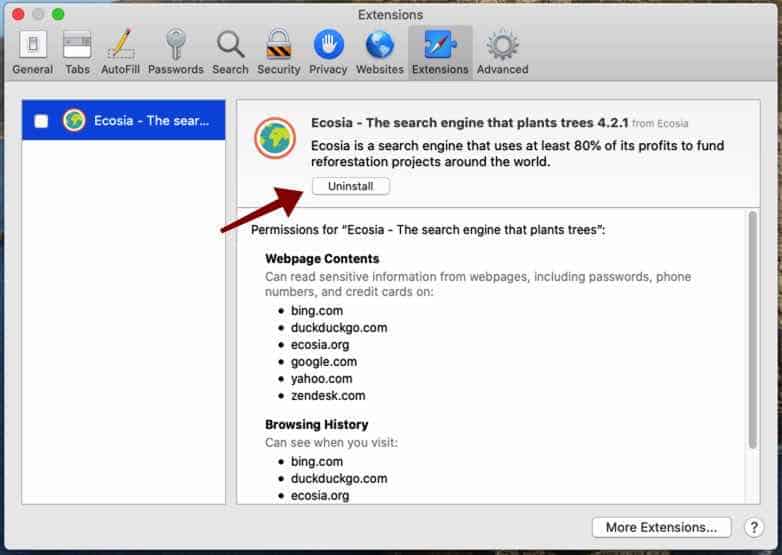
Next, Click on Preferences in the Safari menu, now click on the Websites tab.
In the left menu click on Notifications
Find the Cloudfront.net domain and select it, click the Remove button.

Next, remove malware with Malwarebytes for Mac.
Read more: Remove Mac malware with Anti-malware or Remove mac malware manually.
Remove Cloudfront.net malware with Malwarebytes
Malwarebytes is an essential tool in the fight against malware. Malwarebytes is able to remove many types of malware that other software does often miss, Malwarebytes is costing you absolutely nothing. When it comes to cleaning up an infected computer, Malwarebytes has always been free and I recommend it as an essential tool in the battle against malware.
Install Malwarebytes, follow on-screen instructions.
Click Scan to start a malware-scan.
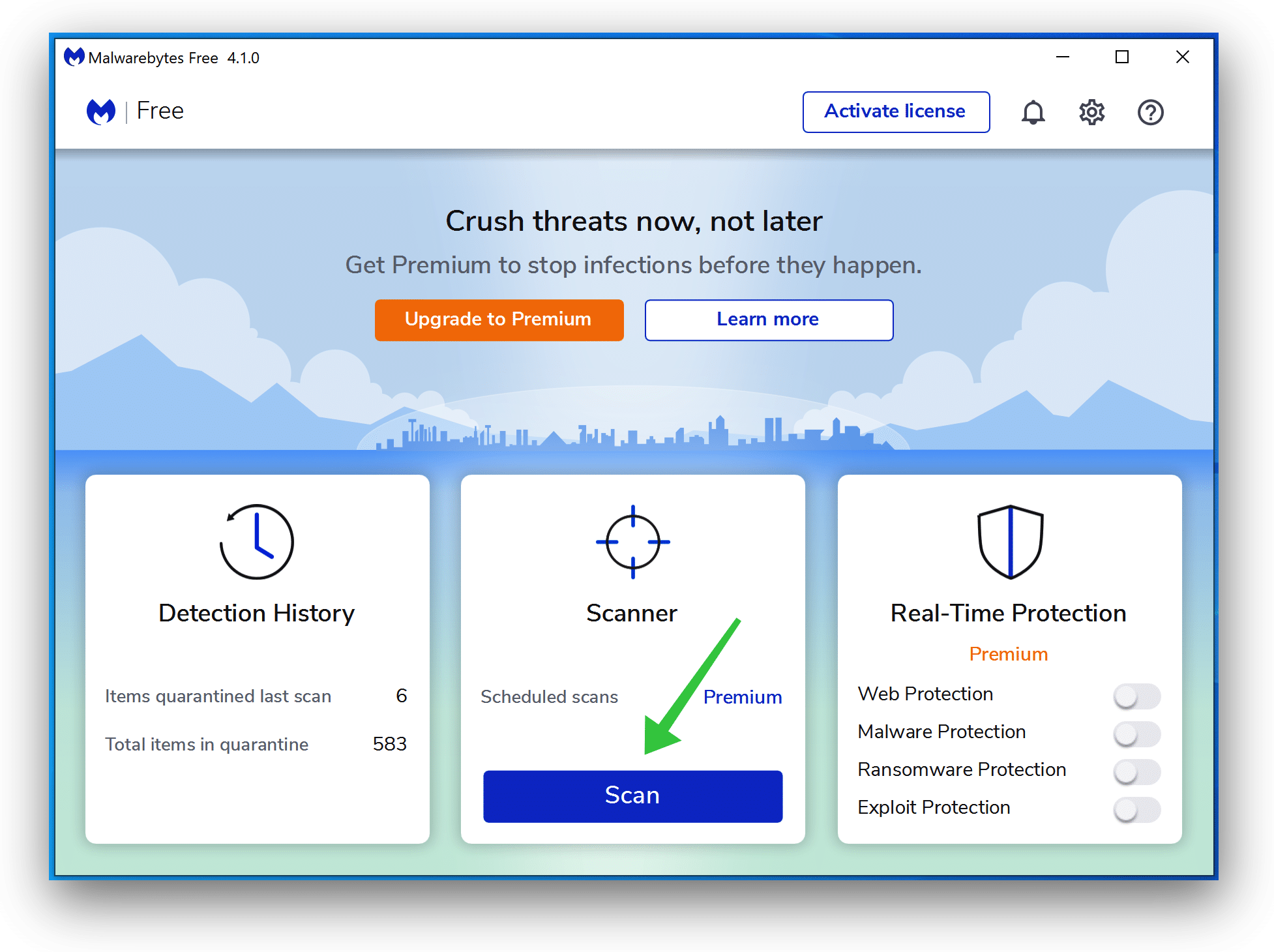
Wait for the Malwarebytes scan to finish. Once completed, review the Cloudfront.net adware detections.
Click Quarantine to continue.
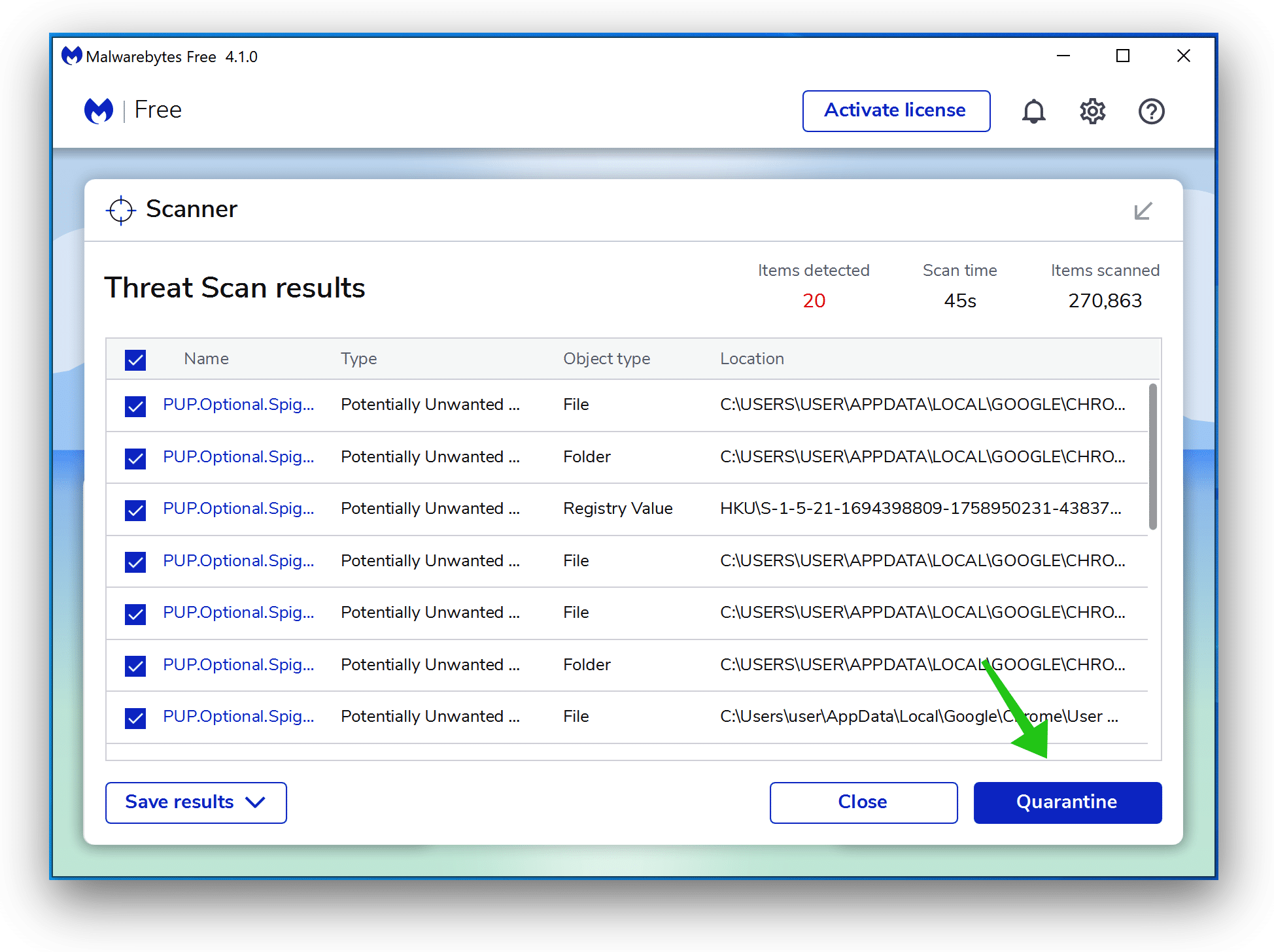
Reboot Windows after all the adware detections are moved to quarantine.
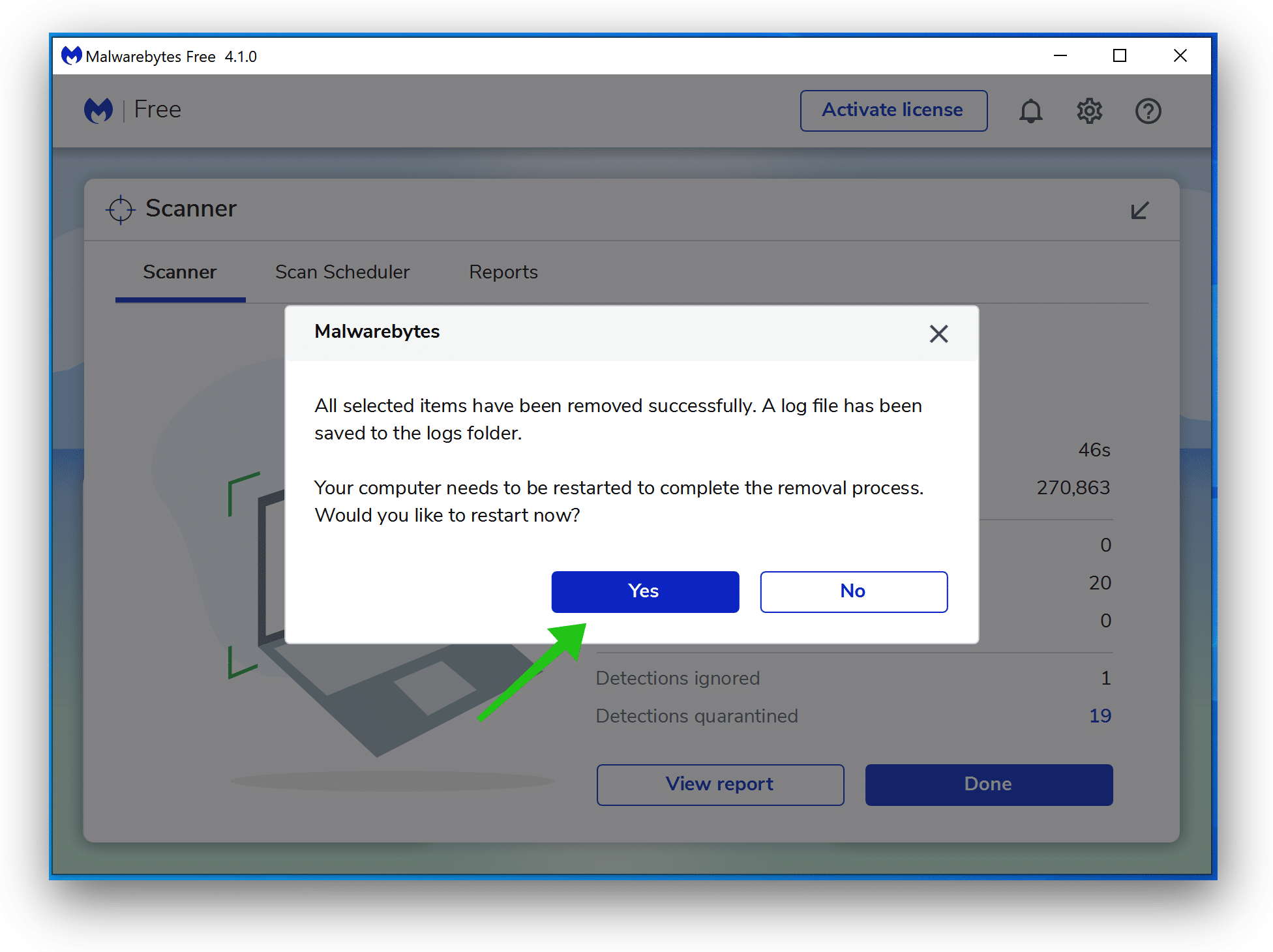
Continue to the next step.
Remove unwanted programs with Sophos HitmanPRO
In this second malware removal step, we will start a second scan to make sure there are no malware remnants left on your computer. HitmanPRO is a cloud scanner that scans every active file for malicious activity on your computer and sends it to the Sophos cloud for detection. In the Sophos cloud both Bitdefender antivirus and Kaspersky antivirus scan the file for malicious activities.
When you have downloaded HitmanPRO install the HitmanPro 32-bit or HitmanPRO x64. Downloads are saved to the Downloads folder on your computer.
Open HitmanPRO to start installation and scan.
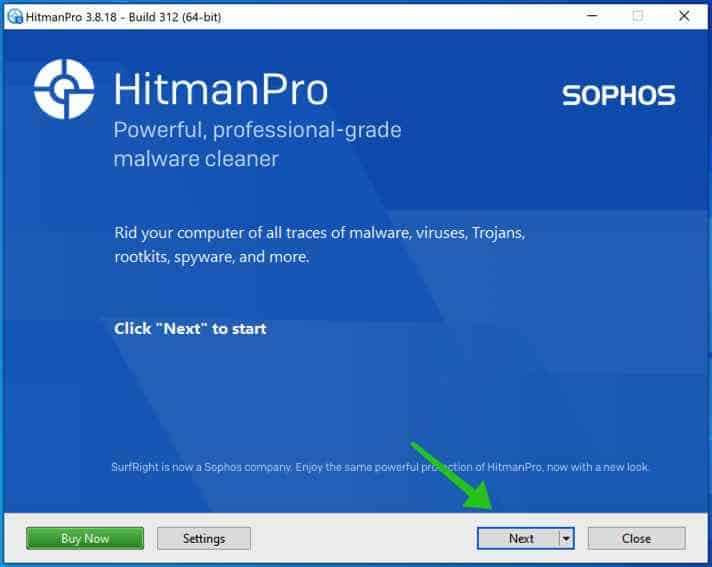
Accept the Sophos HitmanPRO license agreement to continue. Read the license agreement, check the box and click on Next.
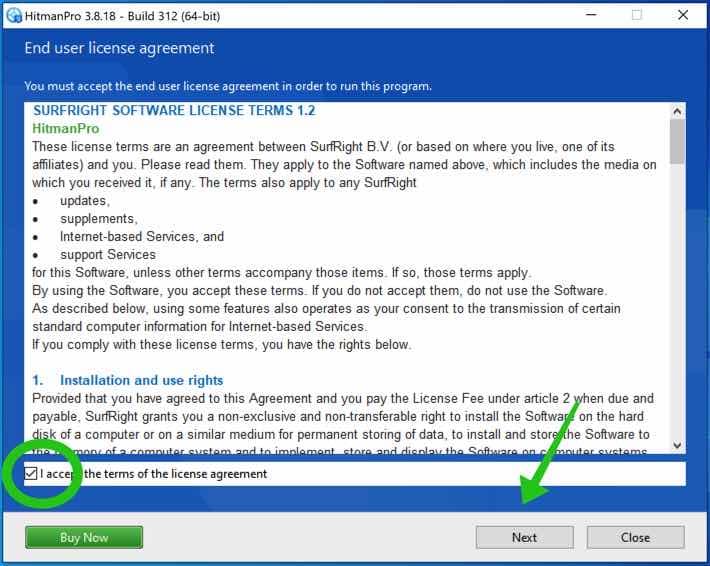
Click the Next button to continue Sophos HitmanPRO installation. Make sure to create a copy of HitmanPRO for regular scans.
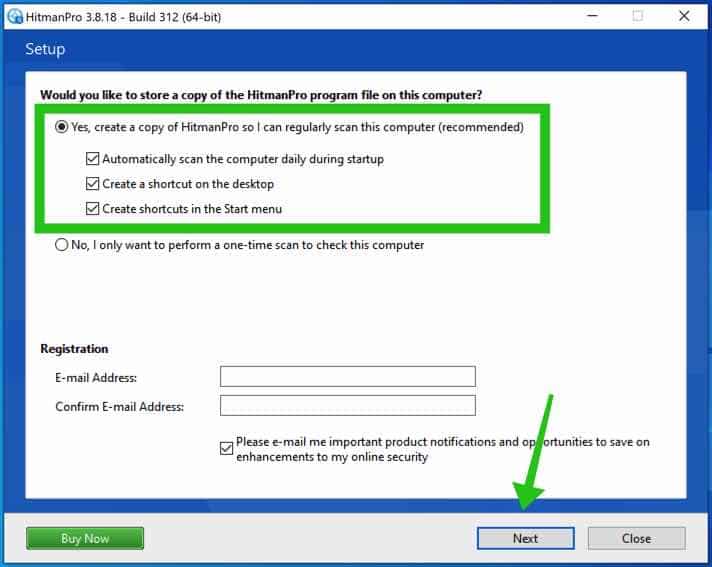
HitmanPRO begins with a scan, wait for the antivirus scan results.
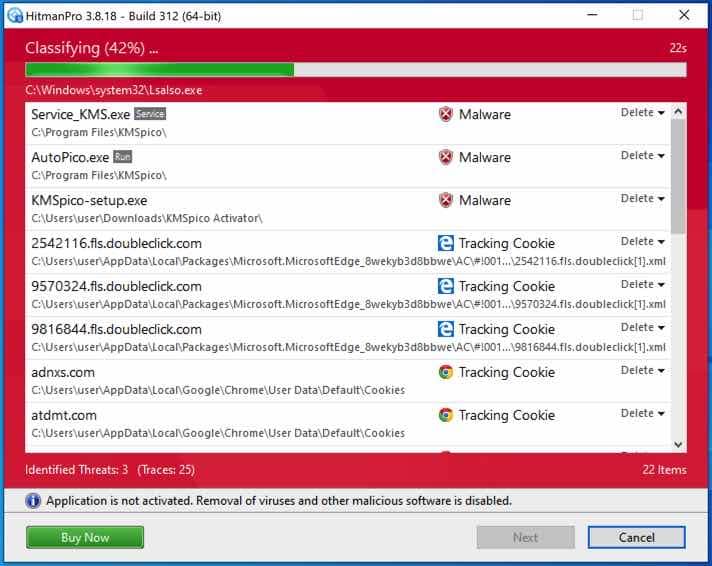
When the scan is done, click Next and activate the free HitmanPRO license. Click on Activate Free license.
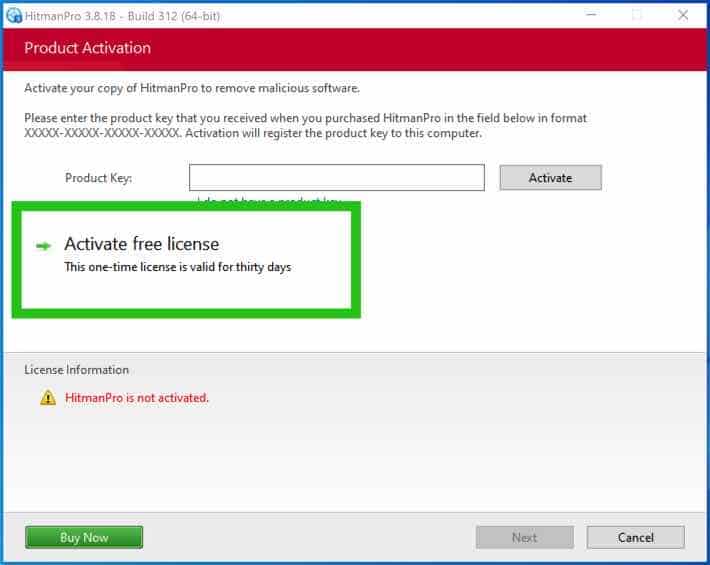
Enter your e-mail for a Sophos HitmanPRO free thirty days license. Click on Activate.
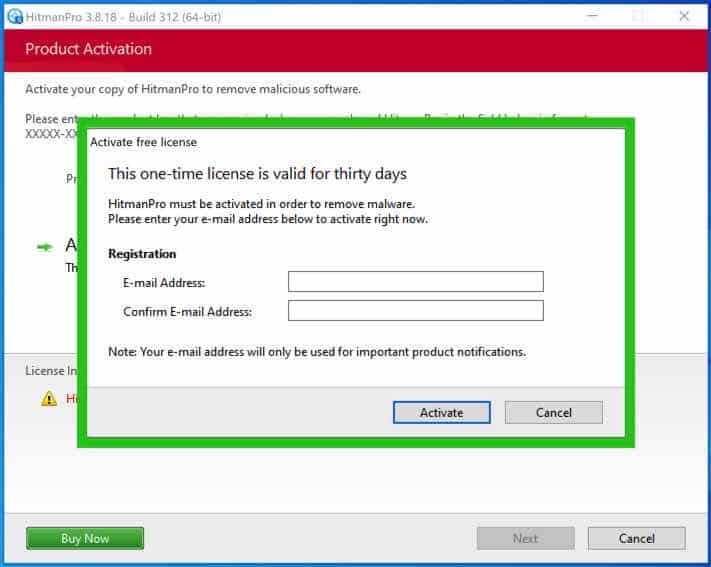
The free HitmanPRO license is successfully activated.
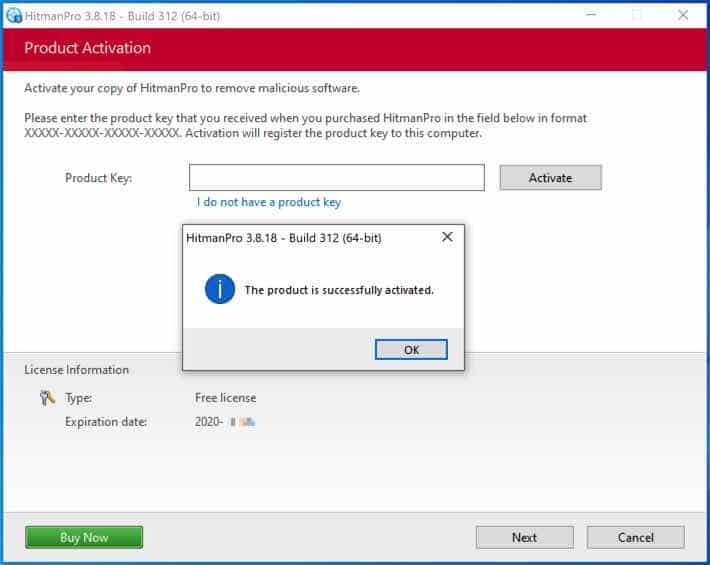
You’ll be presented with the malware removal results, click Next to continue.
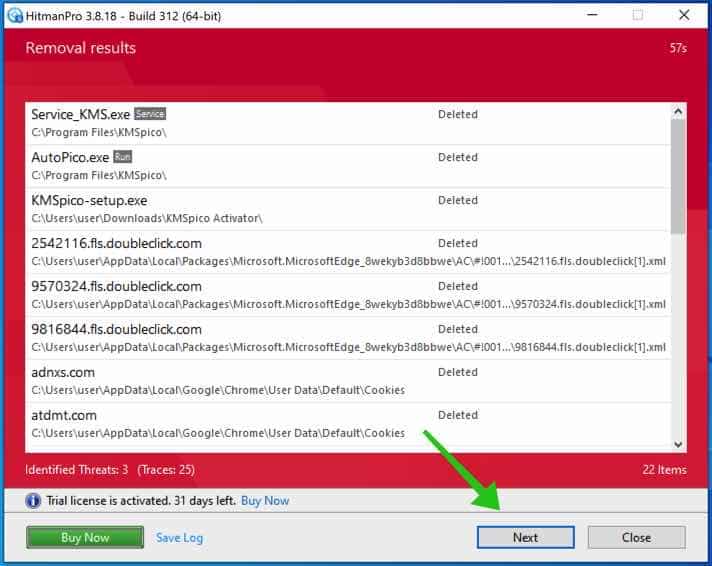
Malicious software was partially removed from your computer. Restart your computer to complete removal.
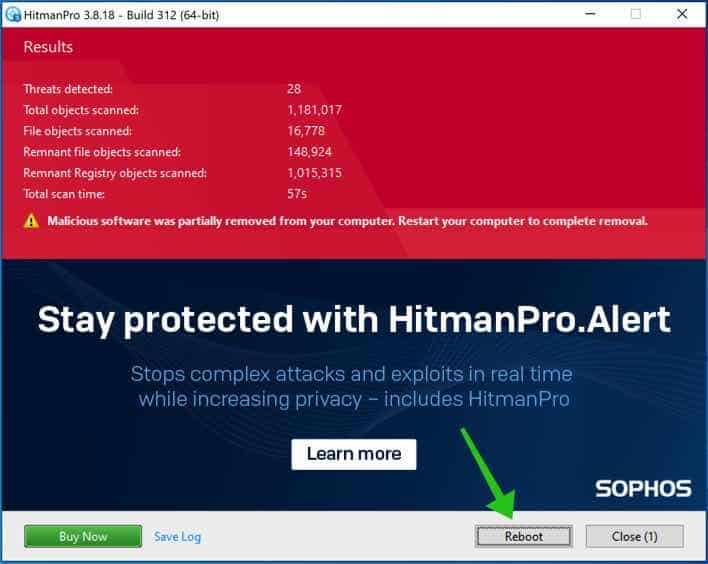
Bookmark this page when you reboot your computer.